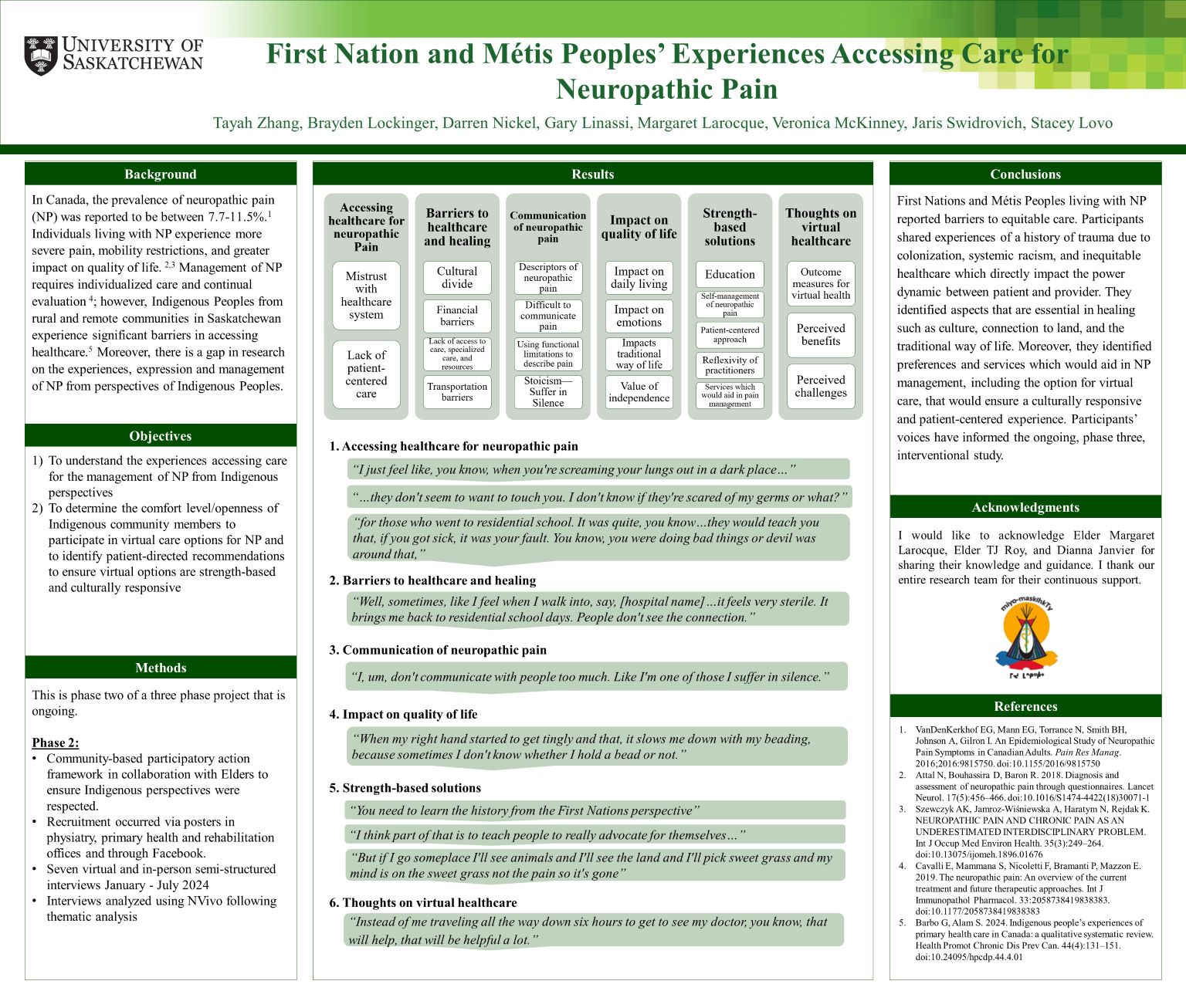
First Nation and Métis Peoples’ Experiences Accessing Care for Neuropathic Pain
Tayah (Xinyi) Zhang
Background: Indigenous Peoples living in remote areas face many barriers to accessing healthcare. Studies on the lived experiences of neuropathic pain from perspectives of Indigenous Peoples are lacking. The goal of this phase two research was to understand First Nations and Métis experiences of neuropathic pain and accessing care, as part of a three-phase project exploring community-directed virtual care strategies for managing neuropathic pain in remote Indigenous communities in Saskatchewan.
Methods: The study used a community-based participatory action framework with the collaboration of Indigenous Elders to ensure findings are community-directed and culturally responsive. Seven individuals participated in semi-structured interviews. Interviews were audio recorded, transcribed, and analyzed using thematic analysis.
Results: The following themes were identified: 1) Accessing healthcare for neuropathic pain, 2) Barriers to healthcare and healing, 3) Communication of neuropathic pain, 4) Impact on quality of life, 5) Strength-based solutions, and 6) Thoughts on virtual healthcare.
Conclusion: First Nations and Métis Peoples living with neuropathic pain reported experiences of impersonal and inequitable healthcare. They identified culturally responsive preferences that could aid in neuropathic pain management. They offered tentative support for virtual care with caveats. Participants’ voices have informed the ongoing interventional study.
